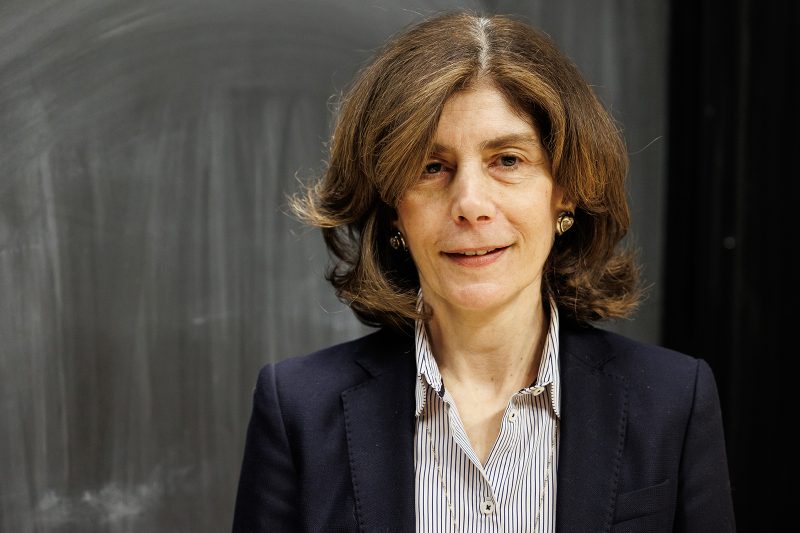The noted microeconomist joins the Jackson School senior faculty in July.
Professor Penny Goldberg gets her best ideas in the middle of the night.
When she’s focused on a big problem—on topics ranging from trade protectionism to spurring economic growth by empowering women—her brain won’t stop until she reaches an idea for a solution. Which means Goldberg, a microeconomist by training, has had many sleepless nights over the course of her long career.
The problems that Goldberg ponders into the wee hours are global in nature and her solutions are rooted in microeconomics. But nothing about her career has been micro.
Goldberg recently returned to Yale after serving as the Chief Economist of the World Bank Group from November 2018 to March 2020. Previously, she was the Editor-In-Chief of the American Economic Review, one of the best economics journals in the world. Goldberg is also a member of the National Academy of Sciences, an honor reserved for the most distinguished national scholars.
In addition to her appointment in Yale’s Department of Economics, Goldberg will be a founding senior faculty member of the Jackson School of Global Affairs beginning this summer. Yale’s newest professional school officially opens its doors on July 1.
Goldberg, who has long been interested in using economic policy to solve complex global issues, is a perfect addition to the interdisciplinary, policy-focused Jackson community.
A native of Greece who grew up in a family with two sisters, Goldberg’s parents encouraged her intellectual pursuits despite not being academics themselves. Goldberg also feels that she was raised with the same privileges that a boy would receive. And while gender discrimination has not stymied her own career, she is well aware of its economic consequences for women across the globe.
“In many developing countries, half the population are considered second-class citizens… there is enormous potential there that has not been harnessed,” Goldberg said.
That’s why Goldberg sought to raise awareness about the issue during her time at the World Bank, including her work with its Women, Business and the Law database, which assigns scores to countries based on the level of discrimination against women that is present in their legal system. Wealthy western countries such as Denmark, France and Canada received scores at the top of the 1-100 scale, whereas developing nations such as Yemen, Sudan and Qatar received low scores based on legal rights pertaining to women’s mobility, workplace rights, pay, marriage, parenthood, entrepreneurship, asset ownership, and pension benefits. The United States ranked relatively high (91.3), but lost points for not having a national paid parental leave policy.

Goldberg believes that one of the strengths of developing this kind of database is that it can encourage competition between countries to improve the legal rights of women. “Saudi Arabia won’t compare itself to Sweden or Denmark, but Saudi Arabia compares itself to Yemen. Countries try to do better than the countries next to them, so you can, in many cases, you can exploit this competition… to try to incentivize policy makers to adopt the right policies,” Goldberg explained.
In a recent article published in the American Economic Review: Insights, Goldberg and her co-authors used the Women, Business and the Law database to uncover insights about women’s legal rights on the global scale. Their research found that the global population of women have, on average, only three-quarters of the same rights under national laws as men.
“Discriminating against women is not bad just for women, it’s bad for the countries themselves. If they empower women, then they can actually do better as a whole,” she said.
For Goldberg, interdisciplinary collaboration has been key to advancing fields such as economics forward. “This old model of homo economicus—the person who always acts rationally and never makes mistakes—this thinking is overcome by now. There are much broader theories of economics that combine psychology, history, political science, and economics.”
“Being in a place [like the Jackson School] where you explicitly have faculty from different departments, you can actually build on this even more,” she said.
Goldberg is particularly looking forward to benefitting from the cross-disciplinary expertise of her colleagues. “At Yale, you can reach out to other departments and talk to other people, but the fact is that there are so many demands on your time that in reality you never do it. At Jackson, we are all under the same roof,” she explained.
All this collaboration on complex, global issues may be a recipe for more sleepless nights. But when Goldberg loses sleep, we all gain.
